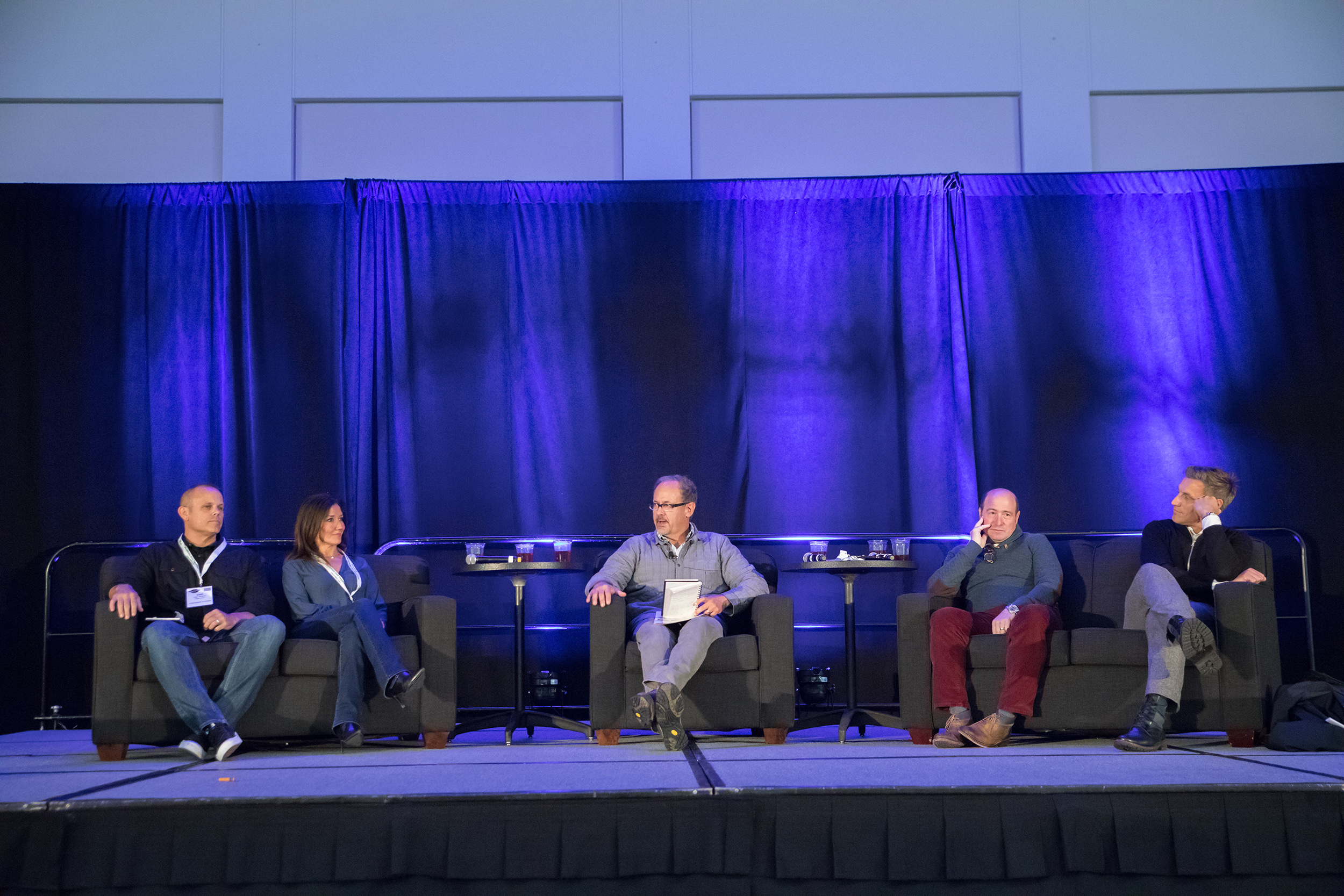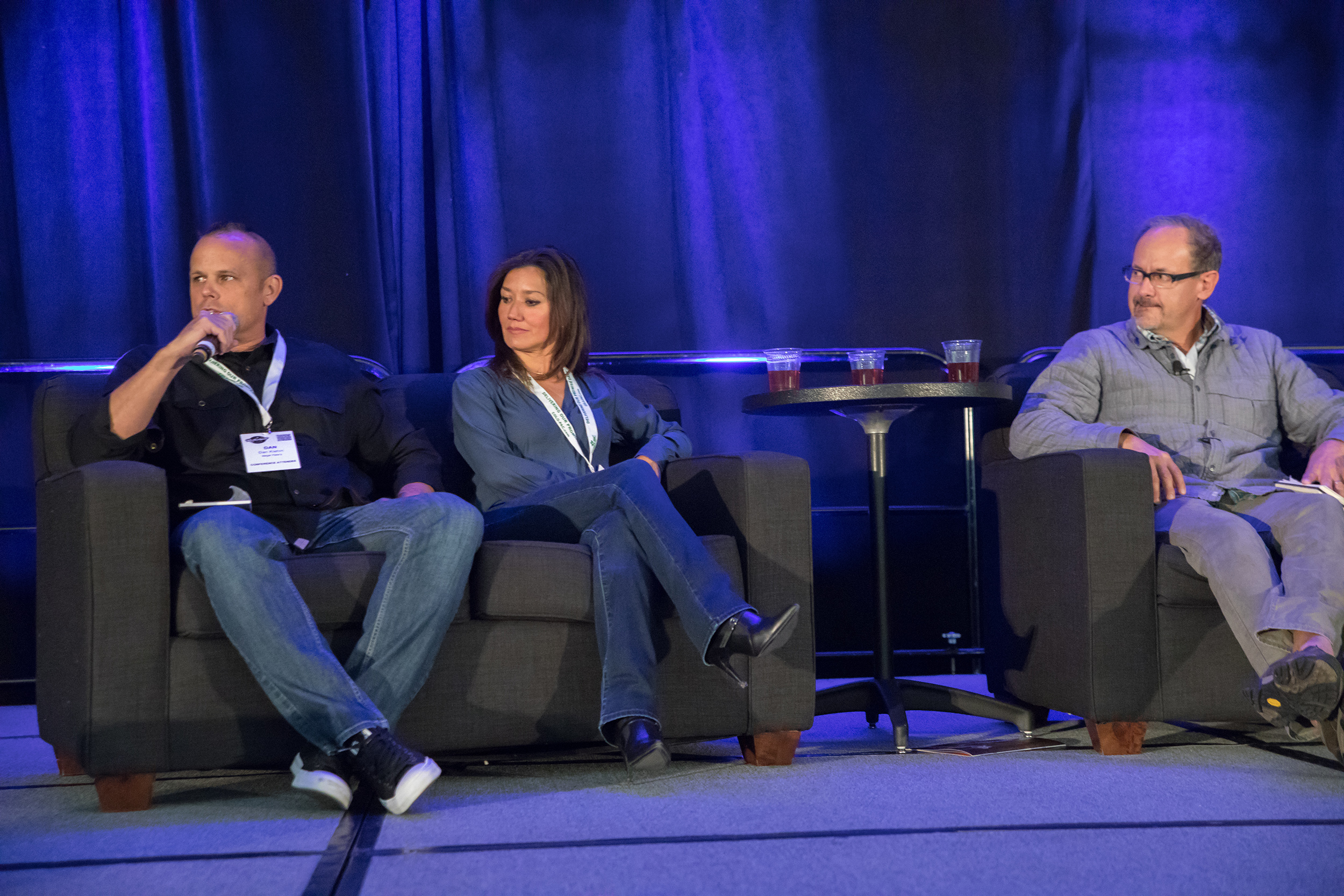
Having a good company culture is one of those things that most people would agree is important, but very few put into practice. As costs increase and the labor pool thins further, establishing and maintaining a strong company culture is important not just for securing customers, but also securing and retaining labor. Culture works from the inside out—in its simplest terms, having a good culture aligned with your brand makes for happy employees and even happier guests.
 At the 2017 Colorado Restaurant Show, Dave Query, Founder and Owner of Big Red F restaurant group led a panel titled, “Culture Club: How Colorado Restaurateurs are Creating a Lasting Culture” with local industry leaders to discuss the impact of culture on operations, costs, marketing and much more.
At the 2017 Colorado Restaurant Show, Dave Query, Founder and Owner of Big Red F restaurant group led a panel titled, “Culture Club: How Colorado Restaurateurs are Creating a Lasting Culture” with local industry leaders to discuss the impact of culture on operations, costs, marketing and much more.
Culture From the Ground Up
Establishing a strong cultural foundation seems to come easy to Frank Bonanno. Founder of Bonanno Concepts, the concept of “family” is one you’ll see and hear about often with this restaurateur, who works alongside his wife and many long-term employees. Since opening his first restaurant, Mizuna, in 2001, Bonanno has opened 11 more concepts (most recently French 75) and plans to nearly double his portfolio by opening an entire food hall, Milk Market at Dairy Block. Yet despite operating a large, diverse restaurant group there has always been one value that remains at the core of every concept, dating back to Mizuna—family. “That is the most important thing,” Bonanno says, “to have a family focus.”
And if you ever have a chance to interact with this “chef-driven family dedicated to satisfying meals, outstanding service, education, and community,” you might get the warm fuzzies when you see that the current pictures of Bonanno’s leadership team (appropriately referred to as the Bonanno Family) replaces a predictable headshot with childhood throwbacks.

Establishing a strong cultural identity from the beginning not only strengthens your team, but attracts other like-minded talent—something that resonates with Illegal Pete’s Chief Operating Officer, Dan Klehm. While interviewing for the Mexican concept chain a little more than 2 years ago, Klehm reflected on an invitation to a party at Red Rocks from President and Owner Peter Turner. Celebrating the chain’s 20th anniversary, Turner created an all-star lineup featuring Lucero and Built to Spill. Though tickets were sold to the public, Turner hooked up anyone who had ever worked at Illegal Pete’s with free tickets and closed all restaurant locations for two days so everyone could attend. Klehm was sold, and has filled the role of COO ever since.
For Lorena Cantarovici, owner of Maria Empanada, culture was the driving force behind her restaurant, which now boasts 3 locations scattered across the Denver metro area. With each empanada that Cantarovici makes, the chef/owner shares the culture surrounding the food and people of Argentina. Her distinct and personal voice resonated with customers, growing quickly from her modest catering kitchen in her personal garage. “It’s not only about the money,” says Lorena Cantarovici, owner of Maria Empanada, “it’s what you provide inside.”
Hire Slow, Fire Fast
Labor remains a hot topic for many restaurateurs, who are not only grappling with increasing minimum wage costs but also a meager workforce. Finding good talent is a common struggle shared among those in the Denver area, but even once you find them, how do you keep them? The cost of turnover is high and hurts restaurants that already operate on slim margins.
That’s why having a strong cultural identity more important than ever. “There are times we are interviewed by the employee,” says Query. You may find the ethics of your business are scrutinized more closely by potential talent—and if you don’t measure up to the standards of your applicants, you’ll have trouble filling those positions.
Word-of-mouth is still one of the most effective ways at hiring new talent, which is why companies like Illegal Pete’s implemented an employee referral program that awards a bonus to the employee if the referral is hired and stays for 90 days.
For Bonanno, his restaurants have integrated personality tests into the hiring process, “You want happy people that are compatible,” says Bonanno. Because ultimately the true magic happens when you build a happy, hardworking team of people who want to be there. In fact, Bonanno Concepts recently hired 3 new enthusiastic employees from the Culinary Quick Start program at Emily Griffith Technical College, a free 4-week program to prepare individuals for the restaurant industry.
Getting good applicants in the door and hired is just step 1—how do you keep them there?
These panelists have found success by creating training programs for different roles within the restaurant. Keeping employees engaged might be as simple as cross-training that individual to assume a new role within the restaurant—maybe from server to bartender, host to cook, or even busser to manager. As Danny Meyer reflected during his restaurant show keynote, “You need to provide employees with enough runway for their own career.”
For Query, setting up a “family fund” for Big Red F employees was an additional safety net and benefit to offer all employees when faced with true life challenges. Whether it’s an unexpected death in the family and you need a flight home, or if you’re facing a medical emergency, all employees are eligible to contribute to, and receive from, the Big Red F family fund.
But what happens if an employee turns sour during their time with you? Do you mentor that employee and see if the trajectory can turn around, or do you cut that employee loose? The general consensus from the group: cut ‘em loose, and quick, “A bad employee undermines your culture and what you’re doing,” says Query.
For Bonanno, the restaurateur reflects that he often takes too long to fire which is why the chef/owner implemented a new operating “entrepreneurial” system for employees and management. Taking into account personal accountability goals, the system is designed to help the team react faster to any potential issues and avoid a bad employee from weighing down the rest of the team.
Klehm chimes in with a “progressive discipline” chart utilized by Illegal Pete’s GMs to help objectively determine the severity of an offense, and whether the action warrants an official warning or if it was an honest mistake.
Communicate and Have Fun
While growth is exciting and can be prosperous, the biggest challenge facing owners of scaling restaurant concepts is maintaining a strong company culture across multiple locations (sometimes spread across state lines). Klehm, a seasoned restaurant executive who led largescale corporate and franchise restaurants prior to joining the Illegal Pete’s team, points to one continuous challenge: communication. Once overseeing around 104 restaurants at a time, Klehm laughs that no matter if it’s 104 restaurants or Illegal Pete’s 9 outposts (modest by comparison), communication is still the #1 issue of complaint. To combat these challenges, Klehm is excited at the prospect of leveraging today’s video technology to keep employees engaged. Hoping to feature Pete’s founder, Turner, in regular video updates, Klehm wants to replace the traditional update letters with a video message that he hopes the younger generation will watch and engage with.
At Bonanno Concepts, management and employees of every restaurant belong to a single, locked Facebook group to share news, swap shifts, and even sell items (like concert tickets you can no longer use). Managers also keep a regular log that is shared amongst all staff to keep everyone informed about what is happening in that restaurant.
For me, I’ve always strongly believed that at the core of every good company culture is fun—and when I found out that ‘Have Fun’ was even listed twice as a value at Tundra Restaurant Supply, it’s no surprise why I enthusiastically joined that team more than 2 years ago. Whether it’s music festivals, company retreats or taking a break from making empanadas for a dance party in the kitchen, life is about being happy and loving what you do. When it comes to establishing a culture in your restaurant, put down the P&L and think about what is right for the restaurant—trust your gut, and your passion, and the rest will follow.
 Corner Booth Blog | TundraFMP Restaurant Supply, News & Equipment Blog
Corner Booth Blog | TundraFMP Restaurant Supply, News & Equipment Blog



